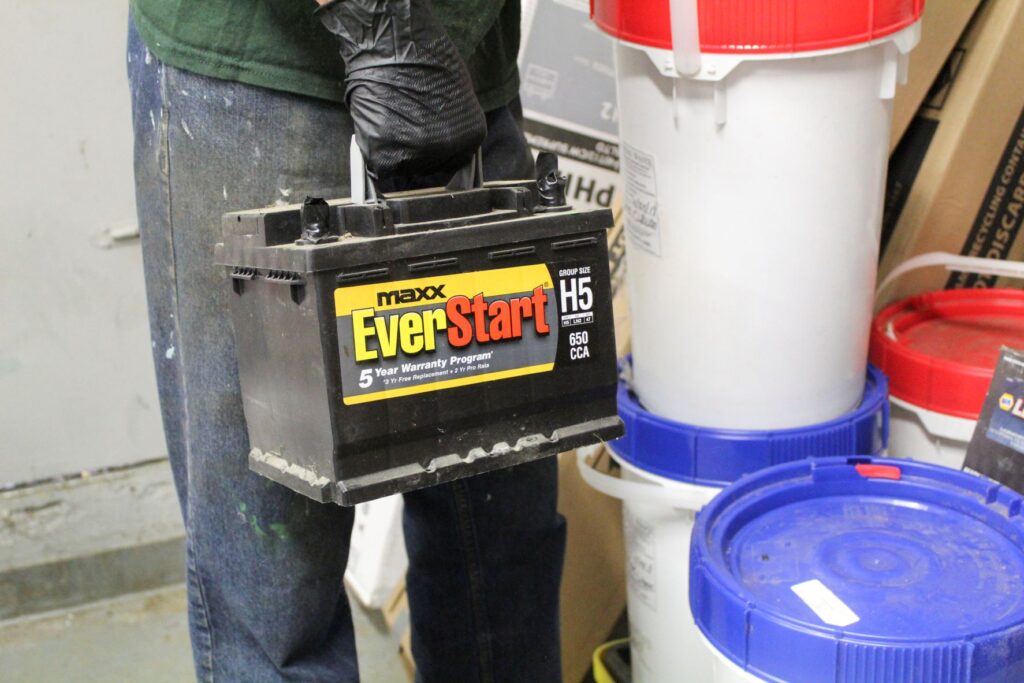Just like their smaller household cousins, larger automotive batteries also lose charge, wear out, and break. And just like those small batteries, car batteries have the same problems—just on a larger scale. There is hazardous waste in car batteries that make them unsafe to throw away in the trash but can also corrode over time if left in place. Learn why batteries need to be handled and disposed of safely and how to do both.
What Makes Automotive Batteries Hazardous Waste?
Unlike their household equivalents which mostly use alkaline or nickel-cadmium, almost all car batteries are lead-acid batteries—either wet cell (also known as flooded) batteries or absorbed glass mat (AGM) batteries. Both use alternating lead and other material plates and are filled with an electrolyte solution that contains sulfuric acid. The lead and sulfuric acid are hazardous materials that need to be disposed of at the proper facilities; they are too dangerous to simply throw in the trash (not to mention, it’s illegal to do so).
Car Battery Disconnecting, Handling, and Storage
Have a dead car battery or one you think may be dead? It’s important to deal with them safely due to the hazardous materials they are made of as well as the possible charge they may contain. Use the following tips:
- Disconnecting Car Batteries: Wear gloves and eye protection; start by disconnecting the negative terminal (black or grey) with a wrench, then the positive cable (red). Disconnect from the hold-down strap or block. Never touch (or have your tools touching) both terminals at once.
- Handling and Inspecting the Battery: Especially with old or damaged batteries, there’s a risk of acid leaks, so make sure to wear gloves the entire time (rubber or acid-resistant).
- Auto Battery Storage: Due to their nature, it’s unsafe to keep car batteries for a long time in storage, especially if there’s damage. If you do, place in a weather-safe area away from other materials that could react with the acid.
It should be noted that many other automotive products, like motor oil and filters, are also hazardous waste and need to be handled and disposed of as such.
Hazardous Automotive Battery Disposal
When it comes to car battery disposal, you have several options. First, if you’re buying a replacement battery, most states require the company from which you’re purchasing to take your previous battery for disposal. Likewise, if you’re selling your car to junk or scrap, these entities will also take the battery. Municipal events and drop-offs may also take batteries, but aren’t always available.
Thankfully, NEDT is here to fill the gap between what your local government provides and your personal needs. We accept car batteries, eWaste, and most other household hazardous waste, through our collection centers and pick-up services. Please contact us if you have questions or want to use our services, or call us at 1 (866) 769-1621.



Leave a Reply